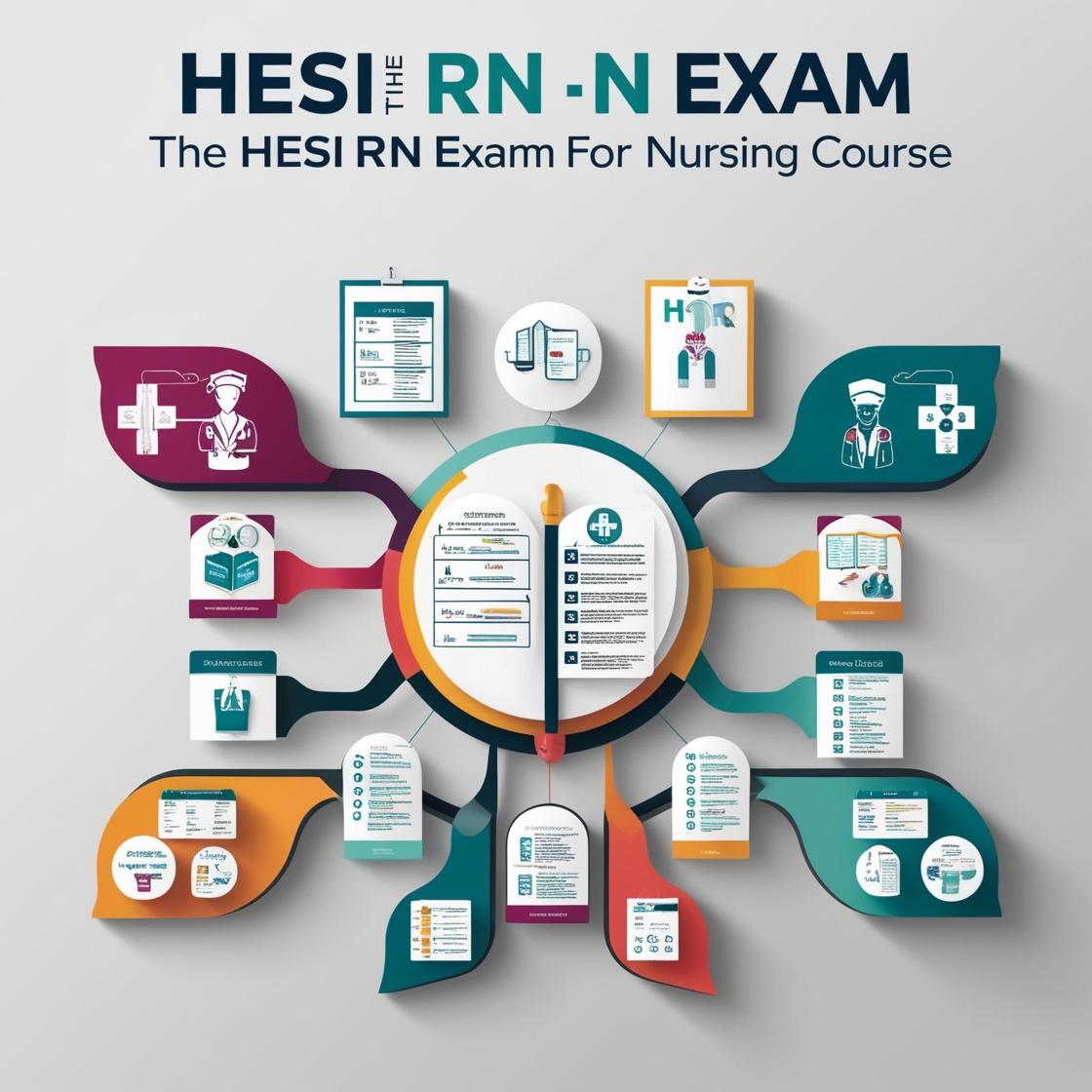HESI RN
HESI RN Nursing Leadership and Management Exam 5
1. A client with Graves' disease is prescribed propranolol. The nurse understands that the purpose of this medication is to:
- A. Treat the underlying cause of the disease
- B. Reduce thyroid hormone production
- C. Alleviate symptoms such as tachycardia and tremors
- D. Increase energy levels
Correct answer: C
Rationale: The correct answer is C: Alleviate symptoms such as tachycardia and tremors. Propranolol is a beta-blocker that helps manage symptoms like tachycardia (fast heart rate) and tremors in patients with Graves' disease. Choice A is incorrect because propranolol does not address the underlying cause of Graves' disease, which is autoimmune in nature. Choice B is incorrect because propranolol does not directly reduce thyroid hormone production; it mainly targets the symptoms. Choice D is incorrect because while propranolol may help with symptoms like tachycardia, it is not intended to increase energy levels.
2. A client with diabetes mellitus is receiving an oral antidiabetic medication. The nurse should monitor for which of the following adverse effects?
- A. Weight gain
- B. Hypoglycemia
- C. Hyperglycemia
- D. Bradycardia
Correct answer: B
Rationale: The correct answer is B: Hypoglycemia. When a client with diabetes mellitus is taking oral antidiabetic medication, the nurse should closely monitor for hypoglycemia, which is a common adverse effect. Hypoglycemia occurs when the blood sugar levels drop below normal range, leading to symptoms like confusion, shakiness, and sweating. Weight gain (Choice A) is not a typical adverse effect of oral antidiabetic medications. Hyperglycemia (Choice C) is the opposite of the desired effect of antidiabetic medications, which aim to lower blood sugar levels. Bradycardia (Choice D) is not directly associated with oral antidiabetic medications; it refers to a slow heart rate.
3. A new nurse is working on becoming a better follower. Which of the following recommendations should she implement?
- A. When you disagree with the manager, seek to determine the manager’s rationale.
- B. Share what you have learned only with newer nurses.
- C. Listen and reflect on your manager’s feedback.
- D. Seek to find a balance and manage your time and energy as you seek to learn about your specialty.
Correct answer: C
Rationale: Listening and reflecting on the manager’s feedback is crucial for a new nurse aiming to become a better follower. It allows the nurse to understand expectations, identify areas for improvement, and show respect for the manager's guidance. Choice A is incorrect as it focuses on resolving disagreements rather than improving followership skills. Choice B is incorrect as knowledge sharing should not be limited to specific groups. Choice D is incorrect as it addresses time management and learning about the specialty, which are important but not directly related to followership development.
4. A client with Cushing's syndrome is being assessed by the nurse. Which of the following clinical manifestations is consistent with this condition?
- A. Moon face
- B. Weight loss
- C. Hyperpigmentation
- D. Hypotension
Correct answer: A
Rationale: The correct clinical manifestation consistent with Cushing's syndrome is a 'moon face.' Cushing's syndrome is characterized by fat redistribution, leading to the round and full appearance of the face known as a moon face. Choice B, weight loss, is not common in Cushing's syndrome as patients often experience weight gain. Choice C, hyperpigmentation, is more indicative of Addison's disease, not Cushing's syndrome. Choice D, hypotension, is not typically associated with Cushing's syndrome which often presents with hypertension due to excess cortisol.
5. What is the lowest fasting plasma glucose level suggestive of a diagnosis of DM?
- A. 90 mg/dl.
- B. 115 mg/dl.
- C. 126 mg/dl.
- D. 180 mg/dl.
Correct answer: C
Rationale: A fasting plasma glucose level of 126 mg/dl or higher is diagnostic of diabetes mellitus. Choice A (90 mg/dl) is too low to indicate diabetes. Choice B (115 mg/dl) is also below the diagnostic threshold for diabetes. Choice D (180 mg/dl) is above the diagnostic threshold and would indicate uncontrolled diabetes, not the lowest level suggestive of a diagnosis.
Similar Questions

Access More Features
HESI RN Basic
$69.99/ 30 days
- 50,000 Questions with answers
- All HESI courses Coverage
- 30 days access @ $69.99
HESI RN Premium
$149.99/ 90 days
- 50,000 Questions with answers
- All HESI courses Coverage
- 30 days access @ $149.99
